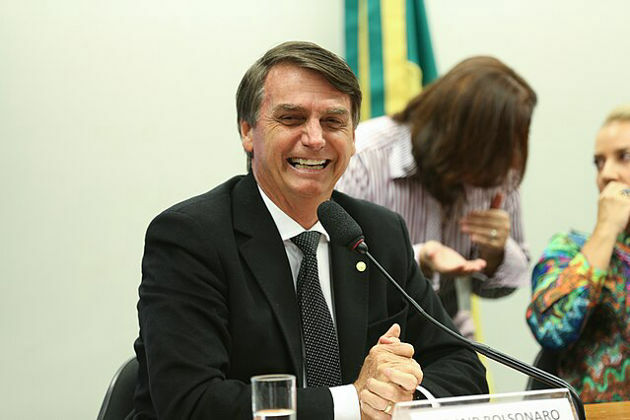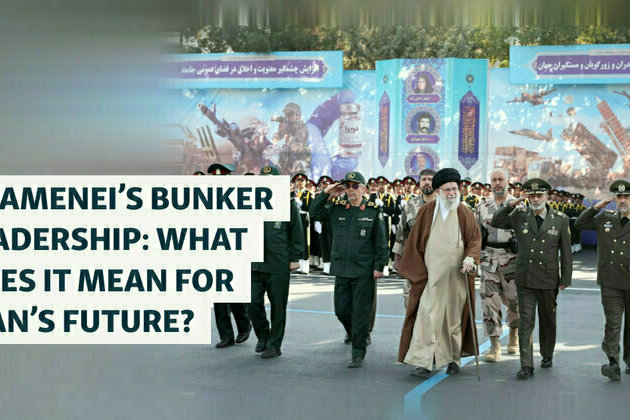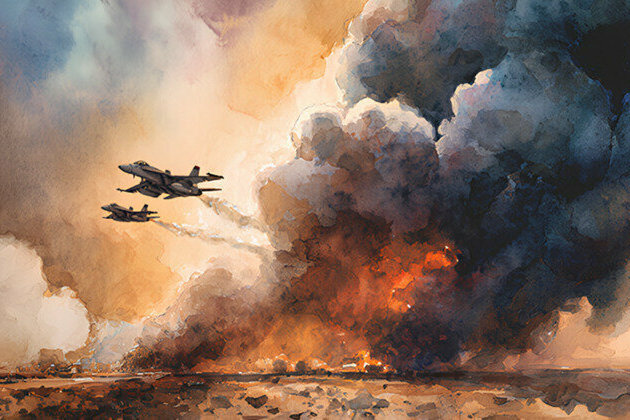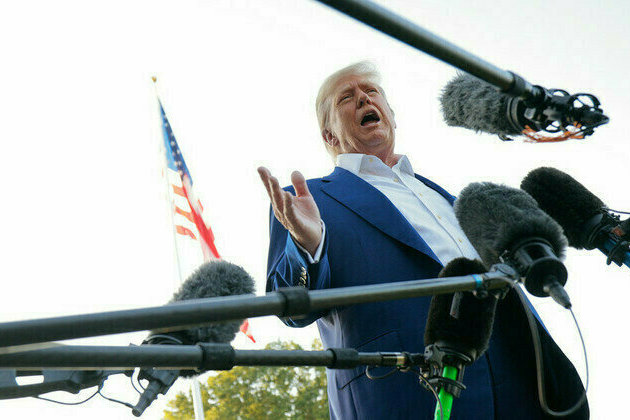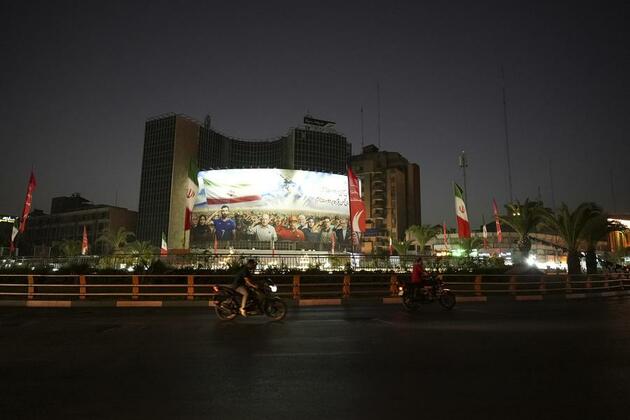Brazil's dangerous flirtation with counterterrorism
The Conversation
24 Jun 2025, 17:36 GMT+10
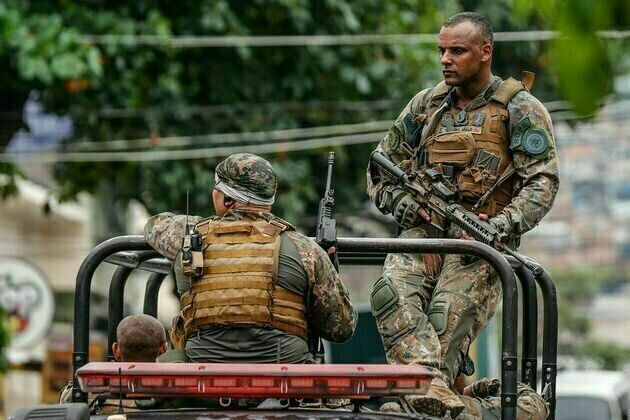
American pop star Lady Gaga delivered a free concert to over 2.1 million revellers on Copacabana beach in the Brazilian city of Rio de Janeiro in May. Those attuned to security concerns saw a policing and public safety nightmare.
And shortly after the concert, Rio de Janeiro's civil police secretary, Felipe Curi, announced that the worst realisation of this nightmare had almost come to pass. An improvised bomb attack targeting fans had been thwarted thanks to police intelligence.
A loose group of conspirators from across Brazil, gelled across chat apps and other social media by anti-LGBTQ+ sentiments, planned to murder civilians. The intention was to send a political message about resisting what they see as "indecency" and "social decadence".
Given the setting, volume of media coverage and possibility of a panicked stampede, Brazil had surely avoided the worst terrorist attack in its history.
For an attack to qualify as "terrorism", it must be carried out for explicitly political purposes - motives akin to reshaping society violently or agitating for self-determination through force.
Yet, a month after the thwarted Copacabana attack, the main conversation about terrorism in Brazil is focused on mistaken efforts to label criminal groups as terrorists.
In late May, Brazil's Congress fast tracked a bill that would broaden the definition of terrorism to include the actions of criminal organisations and militias. This is on the basis that their routine practices of "imposing territorial control" are designed to spread "social or widespread terror". The bill is overly vague and extremely dangerous.
Equating organised crime and the violence it produces with "terrorism" is somewhat understandable. Organised gangs in Brazil, such as Comando Vermelho (CV) and Primeiro Comando da Capital (PCC), control vast expanses of territory, and civilians ultimately pay the price.
However, as endemic as organised crime is in Brazil, these groups strive for self-enrichment. Their violence is used solely to either protect or enhance this goal. Neither CV nor PCC have any political motive that would qualify their actions as terrorism.
The government already has legal ways to deal with criminal groups, but it has been hard to achieve lasting, positive results using these methods.
Should the actions of criminal organisations be reclassified as terrorism, a new suite of measures will become available to the state's repressive apparatus. This will be true for the current government and future administrations.
New measures to fight terrorism are practically guaranteed to erode democratic and procedural norms. Armed with a remit to eradicate terrorism, states have repeatedly shown that they exacerbate the very cycles of violence they aim to erase.
Get your news from actual experts, straight to your inbox. Sign up to our daily newsletter to receive all The Conversation UK's latest coverage of news and research, from politics and business to the arts and sciences.
French-Algerian philosopher Jacques Derrida identified the essence of this dilemma in 2003. In an interview reflecting on the 9/11 attacks on the US, Derrida said that the primary threat of terrorism was not just in the violence itself, but in how societies respond to it.
The US's disastrous "war on terror", for example, led to a consequential wave of violence worldwide. It is estimated to have killed over 500,000 civilians in Iraq, Afghanistan and Pakistan. And western countries that joined the fray have suffered jihadist attacks in return.
Governments also adopted new measures to deal with security issues inside their own countries. Potential terrorists were apprehended through surveillance, with the new goal of counterterrorism being to intervene before violence is able to occur.
States of emergency, which significantly curtail civil liberties, were routinely imposed in the aftermath of high-profile terrorist attacks. This included a state of emergency after the November 2015 attacks in Paris that gave the authorities power to search any premises without judicial oversight.
The implementation of this logic continues today. At the time of writing, denunciations of Israel's assault on Gaza continue to be spuriously tied to support for "terrorism".
Hamas is a terrorist organisation. But that should not see Palestinian civilians - nor supporters of their rights - labelled as potential terrorists. Yet student protesters in the US have been threatened with deportation, financial ruin and even imprisonment.
The term "terrorism" contains within it a power to dress state repression as a proportionate response to emergency. In El Salvador, we have seen how counterterrorism is being applied as an emergency means to solve the country's organised crime problem.
Nayib Bukele's government has sent countless criminals to the Terrorism Confinement Centre mega-prison in Tecoluca. It has also condemned many innocent civilians to a parallel fate, with little-to-no chance of redress or due process.
The tragic consequences of state crackdowns against those spuriously labelled as "terrorists" lingers in the historical memory of Brazil. This new bill moves to the Senate at a time of renewed culturing reckoning with the consequences of Brazil's repressive campaigns under the military dictatorship of 1964 to 1985.
Brazil should recognise its fortune in never having truly adopted the discourse of the war on terror. Now, it should not adopt an evolved discourse of counterterrorism to address the very serious - but very separate - problem of organised crime.
In the name of order and progress, and with an eye towards civilians who would ultimately pay the price, this bill cannot be allowed to become law.
 Share
Share
 Tweet
Tweet
 Share
Share
 Flip
Flip
 Email
Email
Watch latest videos
Subscribe and Follow
Get a daily dose of Mexico City Sun news through our daily email, its complimentary and keeps you fully up to date with world and business news as well.
News RELEASES
Publish news of your business, community or sports group, personnel appointments, major event and more by submitting a news release to Mexico City Sun.
More InformationSouth America
SectionBrazil’s ex-president accused of leading illegal spy operation
BRASILIA, Brazil: Former Brazilian President Jair Bolsonaro is accused of playing a key role in an illegal surveillance operation orchestrated...
Farmers exploit loophole in Amazon soy deal to clear rainforest
SANTAREM, Brazil: As Brazil cements its position as the world's top soy exporter, a new wave of deforestation is spreading across the...
Update: Xi meets Ecuadorian president
BEIJING, June 27 (Xinhua) -- Chinese President Xi Jinping met with Ecuadorian President Daniel Noboa in Beijing on Friday. Xi said...
(SP)U.S.-CHICAGO-VOLLEYBALL-NATIONS LEAGUE-MEN-CHINA VS BRAZIL
(250627) -- CHICAGO, June 27, 2025 (Xinhua) -- Qu Zongshuai of China saves the ball during the Pool 5 match between China and Brazil...
Report: Alpine mulling driver swap ahead of race at Imola
(Photo credit: Gary A. Vasquez-Imagn Images) Alpine Racing is considering replacing driver Jack Doohan with Franco Colapinto for...
Target isn't just Asian Cup, but also World Cup: Midfielder Sangita Basfore
Chiang Mai [Thailand], June 27 (ANI): For the Blue Tigresses, the AFC Women's Asian Cup isn't only about competing against the continent's...
World
SectionKhameneis Bunker Leadership: What Does It Mean for Irans Future
Supreme Leader Ayatollah Ali Khameneisabsencefrom public view during the Israel-Iran war could become a defining moment for his leadership...
Indian stocks soar for fourth day over US trade deal hopes
New Delhi [India], June 27 (ANI): Indian stock indices stayed in the green for the fourth straight session, lending support from positive...
Global Human Rights Groups call out China at UN for ongoing persecution of lawyers
Geneva [Switzerland], June 27 (ANI): A coalition of global human rights organisations has expressed grave concerns during the 59th...
Forget Middle East: This region could be next to see a major crisis
Russia must watch the fallout of Israels wars especially in its backyard The war in the Middle East poses a growing threat to Central...
From bunker bombs to Nobel dreams: Trumps war for peace
Choosing a military solution over a negotiated one in dealing with Iran is is a throwback to US unilateralism and regime change policies...
Iran says no agreement reached to resume talks with U.S.
TEHRAN/WASHINGTON, June 27 (Xinhua) -- Iranian Foreign Minister Seyed Abbas Araghchi said on Thursday that no arrangement or commitment...

